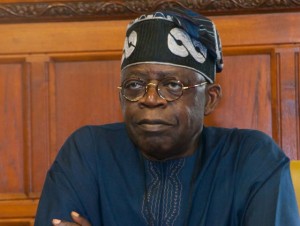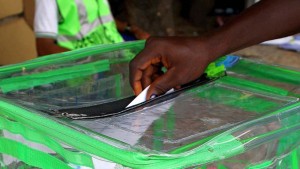
ABUJA, Jan 22 (Reuters) – Allowing Nigeria’s naira to float would cause a currency crisis, the country’s central bank governor said on Tuesday, after the main opposition candidate in next month’s presidential election proposed a free float.
Godwin Emefiele made the comments shortly after announcing that the bank’s monetary policy committee had left its benchmark interest rate at 14 percent – a record level that has remained unchanged for more than two years.
Nigeria emerged from its first recession in 25 years in 2017. Higher oil prices and recent debt sales have helped it accrue billions of dollars in foreign reserves. But growth remains fragile.
A presidential election is set for Feb. 16. Incumbent Muhammadu Buhari has campaigned on infrastructure development; the main opposition candidate, former vice president Atiku Abubakar, says he will allow the naira to float and overhaul the central bank.
Emefiele imposed currency restrictions in 2015, defying advice from bankers to float the naira and raise interest rates as some other oil exporters had done. His decisions were in line with the stance taken by Buhari, an opponent of letting the naira float freely.
“On the issue of free float, the monetary policy committee has said it is wrong – it will certainly lead to capital flight,” Emefiele said at a press conference after announcing the rate decision.
“It will lead to massive, massive depreciation of the valuation of our currency, and ultimately to currency crisis in Nigeria,” he added.
Answering a question about an unnamed presidential candidate criticising the central bank’s policies, Emefiele said: “I have always said that we are apolitical. We will remain apolitical.”
Currency controls imposed by Emefiele saw investors cutting their exposure to Nigerian assets as the once-promising emerging market was ejected from key bond indexes.
Tuesday’s decision to hold the benchmark rate at 14 percent was widely expected. Most analysts polled by Reuters expect the rate to be kept on hold until at least the middle of the year.
The bank has kept the benchmark rate unchanged in an effort to curb inflation, support the naira and attract foreign investors into the debt market.
Inflation has been rising steadily since July, increasing chances that the central bank would tighten interest rates this year. The inflation rate has been in double digits for three years and rose to a seven-month high of 11.44 percent in December.



